Vocabulary Building Normal Phonics Worksheets for Ages 3-8
11 filtered results
-
From - To
Unlock your child's reading potential with our "Vocabulary Building Normal Phonics Worksheets for Ages 3-8". Designed to enhance early literacy, our worksheets immerse young learners in engaging activities that strengthen phonics skills and expand vocabulary. Each worksheet is thoughtfully crafted to improve letter recognition, sound awareness, and word formation. Perfect for at-home learning or classroom use, these worksheets are an excellent resource to help your child develop essential reading skills in a fun, interactive way. Empower your child to become a confident reader with the help of our expertly designed phonics worksheets.
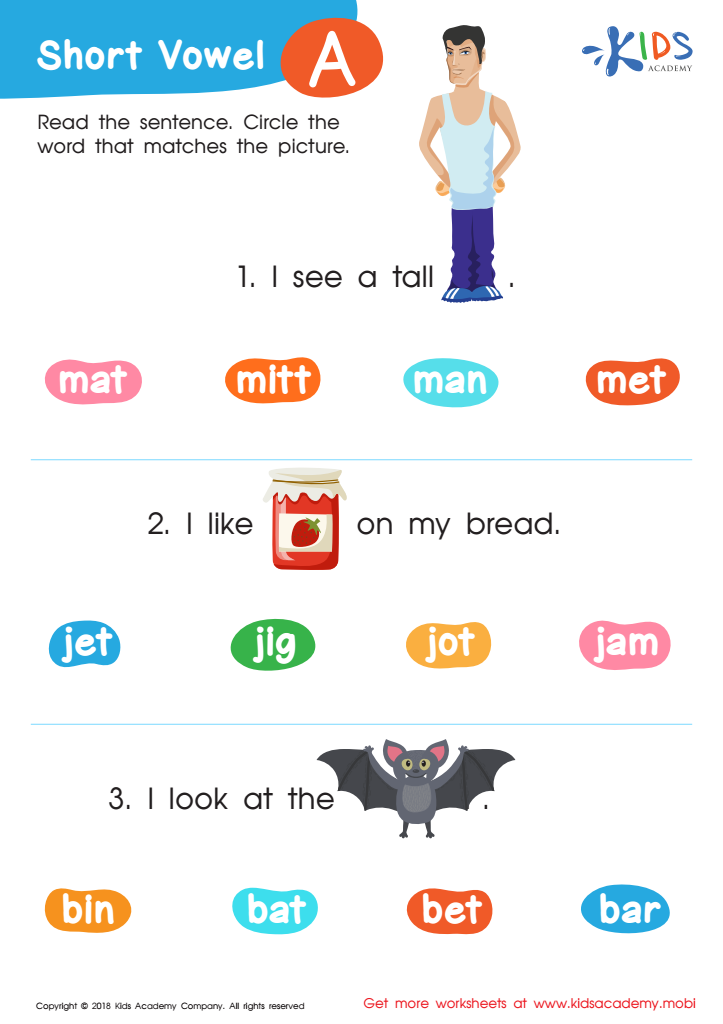

Short Vowel /a/ Worksheet
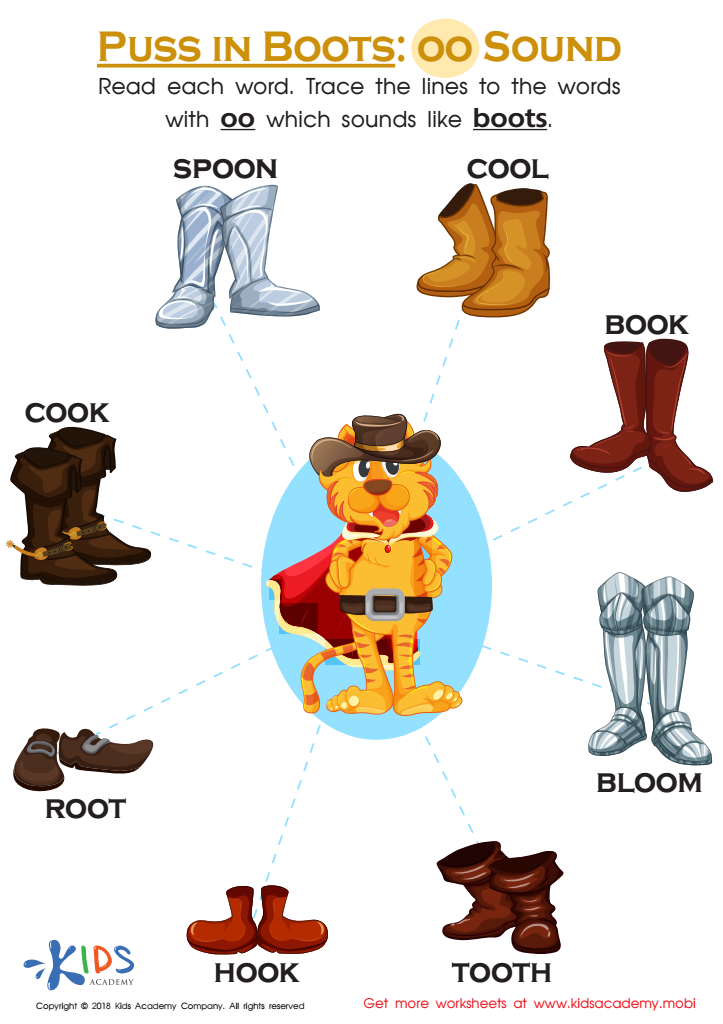

Puss in Boots: OO Sound Worksheet
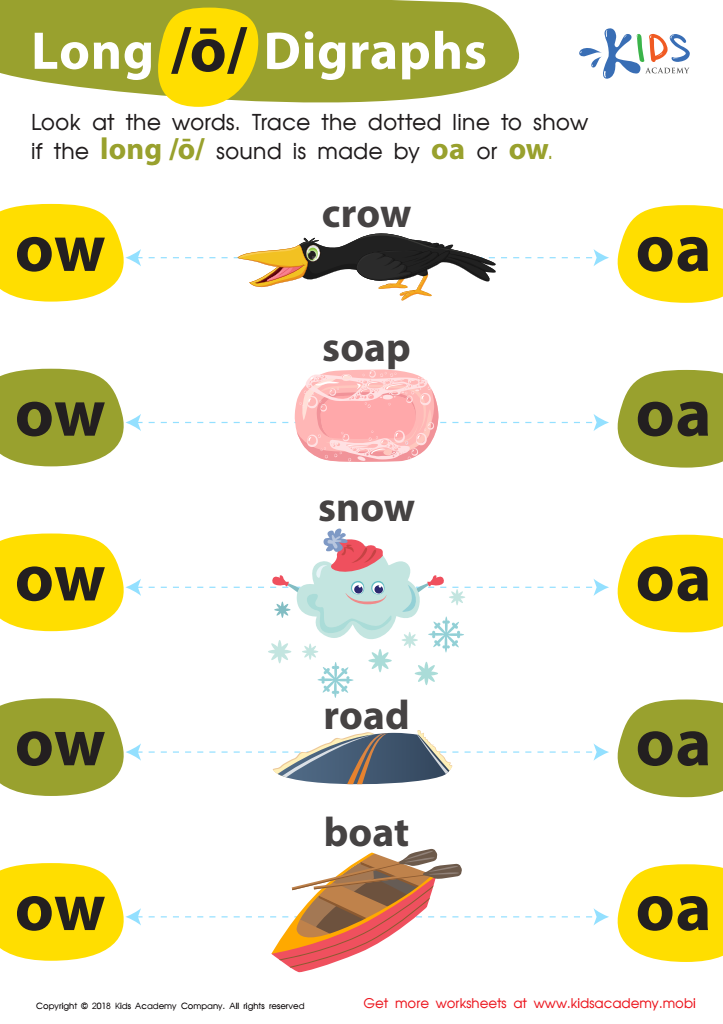

Reading: Long O Digraphs Worksheet
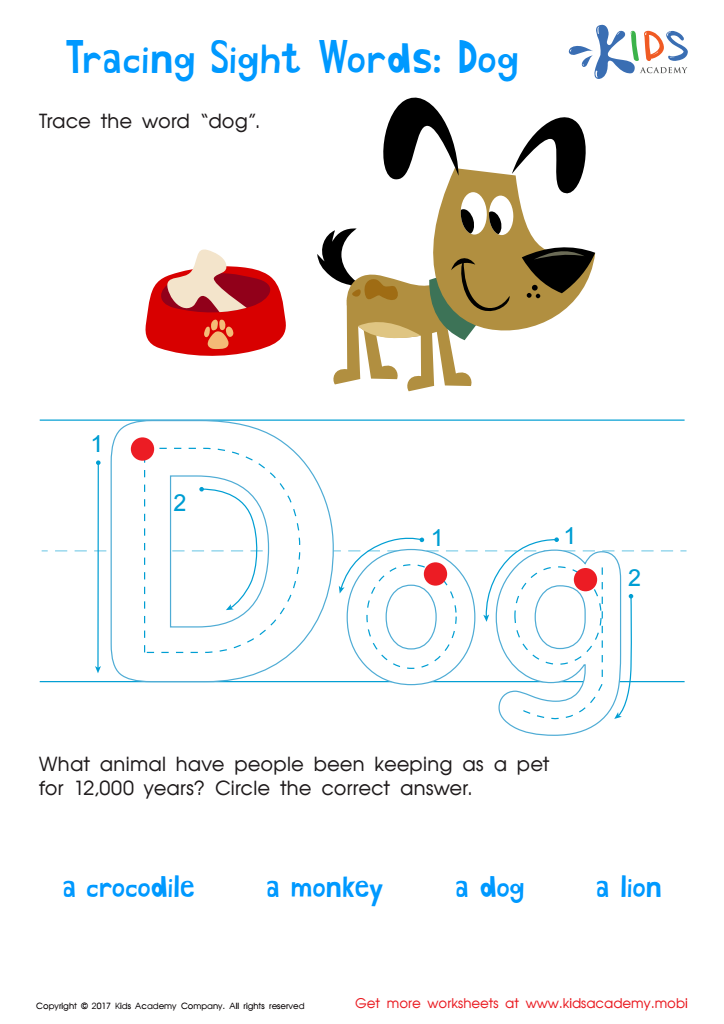

Dog Worksheet Sight Words Worksheet
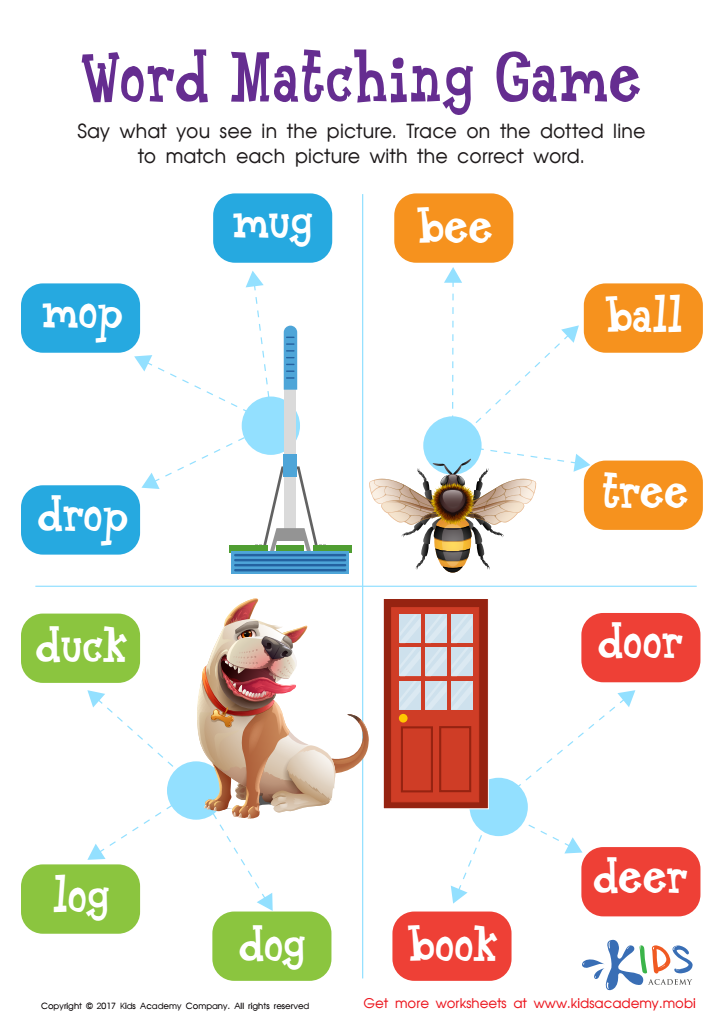

Word Matching Game Worksheet
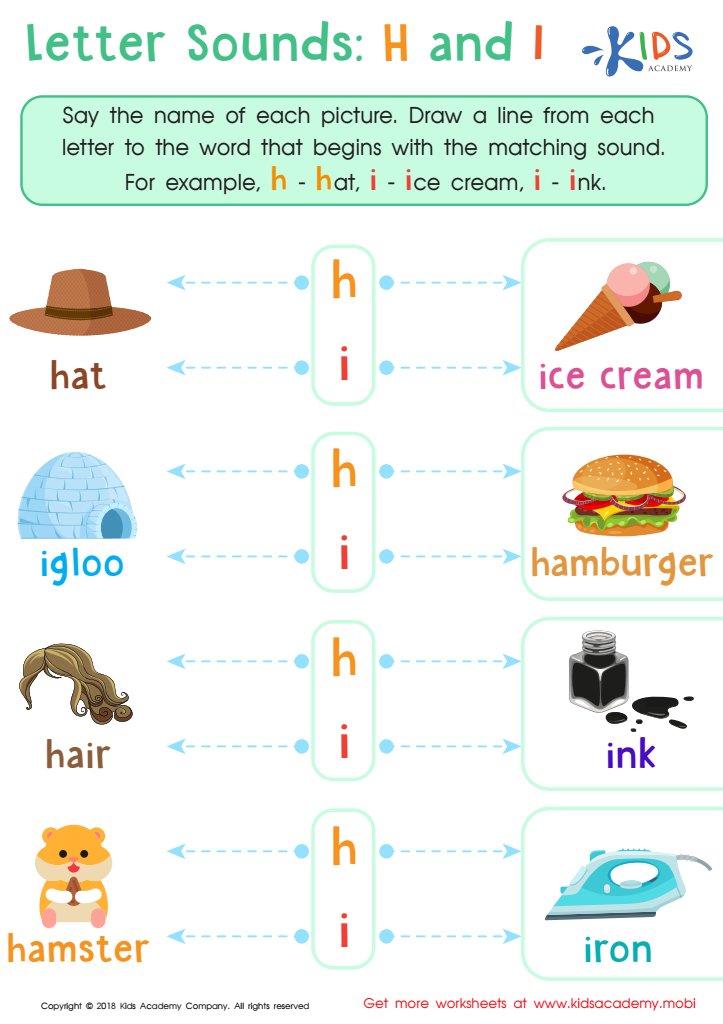

Letter H and I Sounds Worksheet
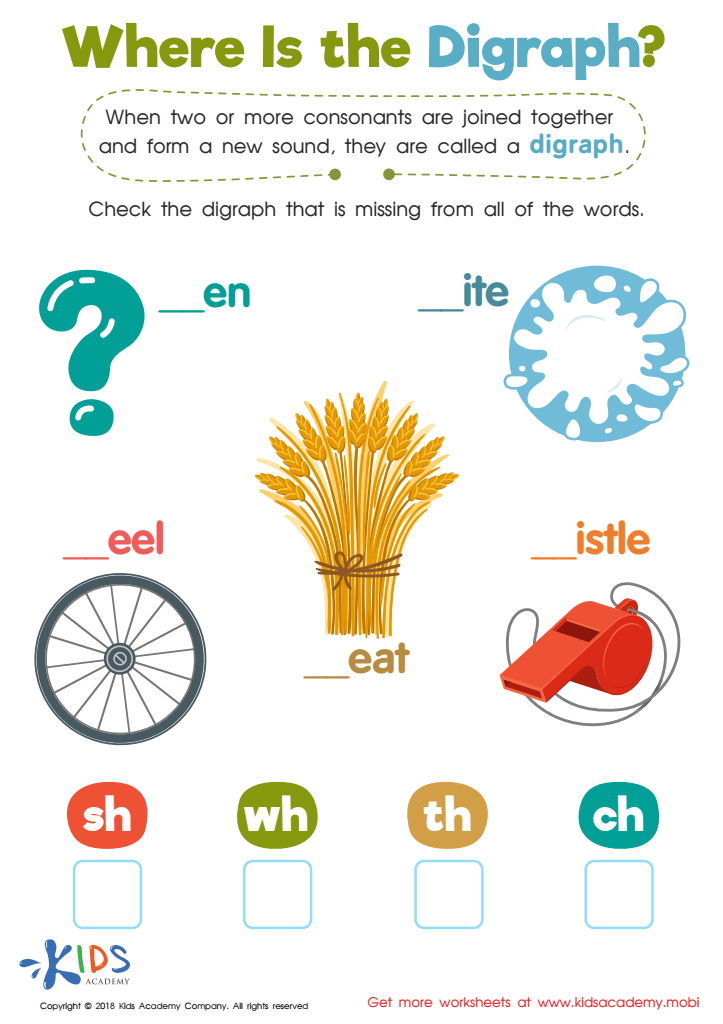

Where Is the Digraph? Worksheet
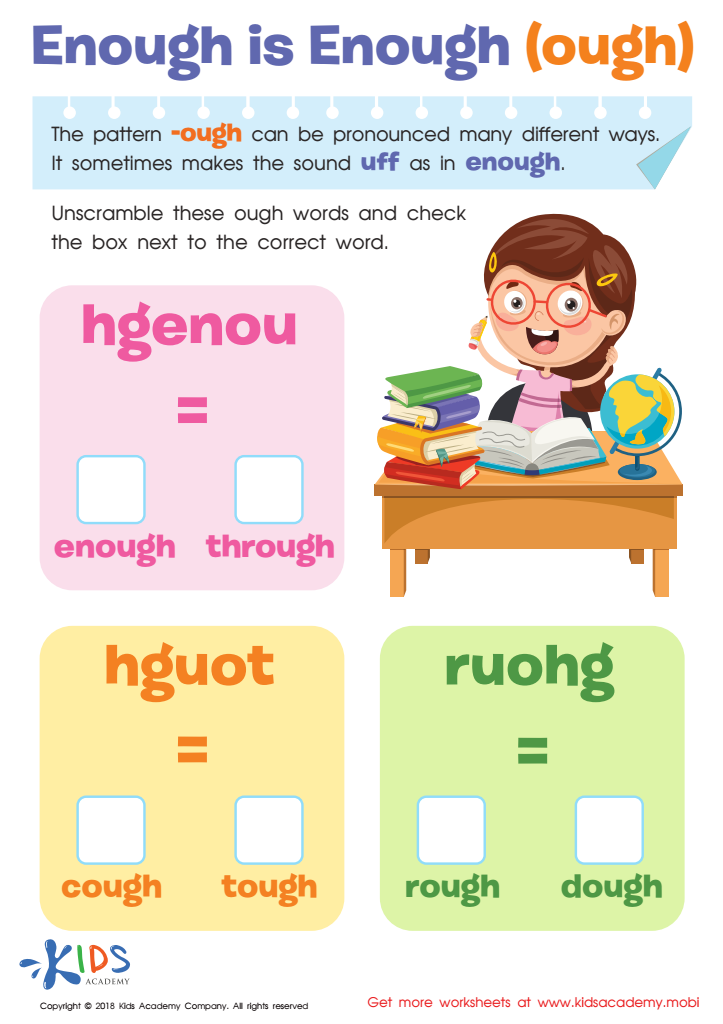

Enough Is Enough (ough) Worksheet
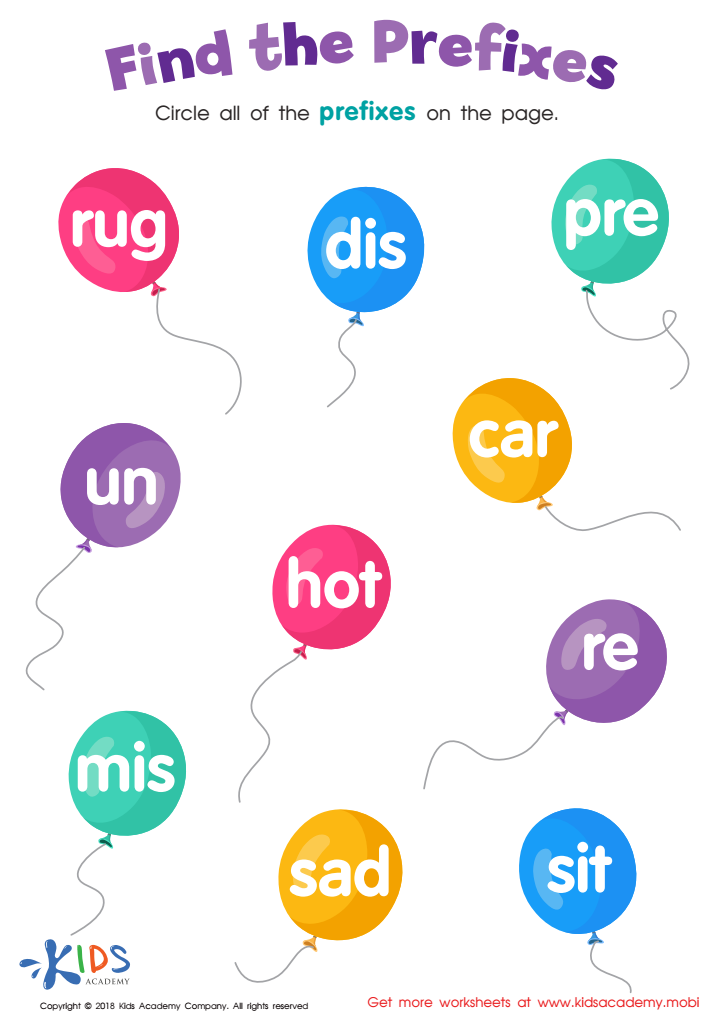

Reading: Find the Prefixes Worksheet
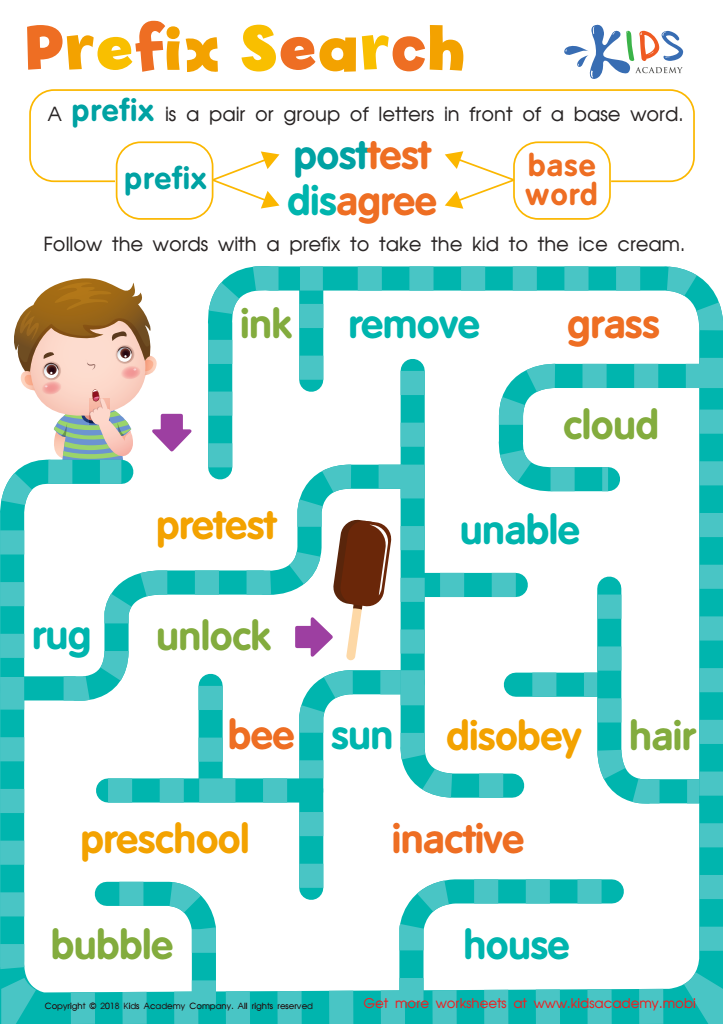

Reading: Prefix Search Worksheet


Words with sound p Reading Worksheet
Vocabulary building and phonics instruction for ages 3-8 are cornerstone elements in a child’s educational development. During these formative years, children are highly receptive to learning language, and this period presents a golden opportunity for parents and teachers to establish a strong foundation.
Firstly, a robust vocabulary is critical for effective communication. It enhances children's ability to express their thoughts, needs, and emotions clearly. When children can articulate well, it boosts their confidence and facilitates better interpersonal interactions.
Phonics, the understanding of how letters and sounds form words, is integral to reading and spelling. A secure grasp of phonics enables children to decode new words independently, fostering literacy skills. This foundational literacy allows children to access a broader range of texts and, subsequent to reading independently, they acquire more vocabulary – creating a virtuous cycle of learning.
Moreover, early vocabulary and phonics skills have been linked to academic success. Young readers who possess strong literacy skills consistently perform better across subjects, as reading comprehension is crucial in subjects like science and mathematics.
Investing time and effort into vocabulary building and phonics instruction sets the stage for lifelong learning and success. It equips children with the tools they need to navigate their educational journey and beyond, making it essential for parents and teachers to prioritize these areas during early childhood.
 Assign to My Students
Assign to My Students















